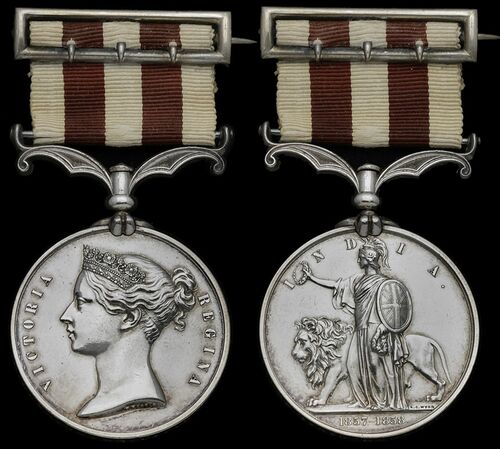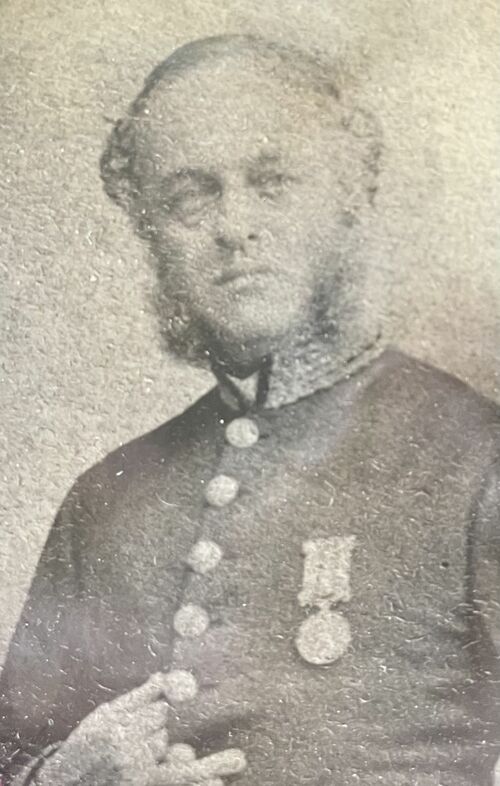Auction: 23001 - Orders, Decorations and Medals
Lot: 245
Indian Mutiny 1857-59, no clasp (Ed. H. Lushington, Civil Service), fitted with silver riband buckle, good very fine
Edward Harbord Lushington was born in 1822, eldest son of Rt. Hon Stephen Lushington, M.P., who was a radical for the abolition of slavery and capital punishment. Young Lushington was appointed to the Bengal Civil Service, from Haileybury, in 1841, and served in Bengal as Assistant Collector and Magistrate. He was appointed Deputy Collector of Government Sea Customs at Calcutta in 1855; Collector at Nuddea in 1856; Junior Secretary to the board of revenue for the Lower Provinces in 1857; and as Acting Commissioner of Bardwan, Manbhum, and Singbhum during the Indian Mutiny in 1857-58 (Medal without clasp). He was present at an engagement with the Porohaut insurgents on 24 December 1857, and at an engagement with the Kole rebels near the village of Koochrae on 14 January 1858.
On this latter occasion Mr. Lushington, attended by Dr. Hayes and accompanied by Captain Hale, Lieutenant Birch, and fifty Sikhs, who had been engaged in seizing men convicted of murder, found themselves suddenly surrounded by not less than three to four thousand infuriated Koles, armed with arrows, who had stolen up unperceived. Nothing but the steady gallantry of the Sikhs extricated the party from their perilous position. They had to fight their way through their numerous opponents, and it was only by great perseverance, and at the expense of a large casualty roll, that they ultimately succeeded. Twenty-five Sikhs were wounded, one mortally; one was killed. Captain Hale was wounded in four places; Lieutenant Birch had his arm pinned to his side by an arrow; Mr. Lushington and Dr. Hayes were also wounded, and Mr. Lushington also had his horse wounded under him. Of the enemy a hundred and fifty are said to have fallen.
Lushington subsequently accompanied the force under Colonel Forster, of the Shekawatti Battalion, during its operations in Colehan, and was present at an engagement at Sagarkattan on 9 February 1858. After the suppression of the Mutiny, he held several important positions including those of Commissioner of Revenue at Nuddea 1861; Secretary to the Government of Bengal 1861; Secretary to the Government of India in the Financial Department, Government Director of the Bank of Bengal, and Member of the Mint Committee 1863. He retired from the service in 1871, after which he returned to England and became a Justice of the Peace for Surrey and London. He died on 28 October 1904 and is buried in the Cobham Cemetery; sold together with an old photograph of the recipient wearing his Medal.
For his miniature dress Medal, please see Lot xxx.
Subject to 20% VAT on Buyer’s Premium. For more information please view Terms and Conditions for Buyers.
Sold for
£1,300
Starting price
£210







